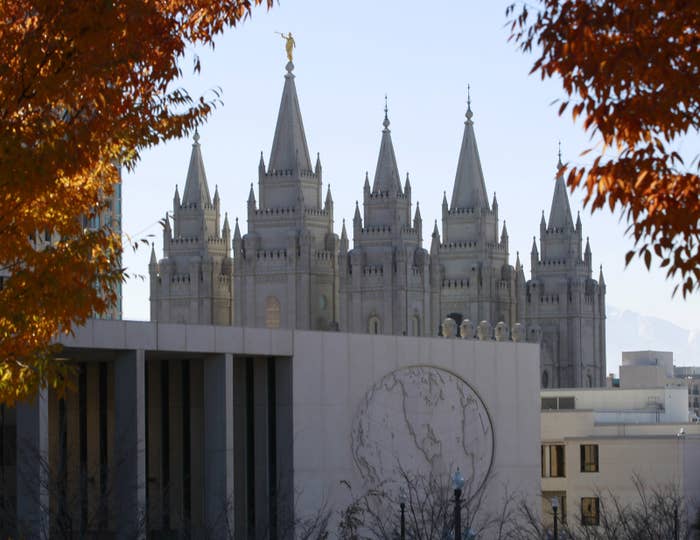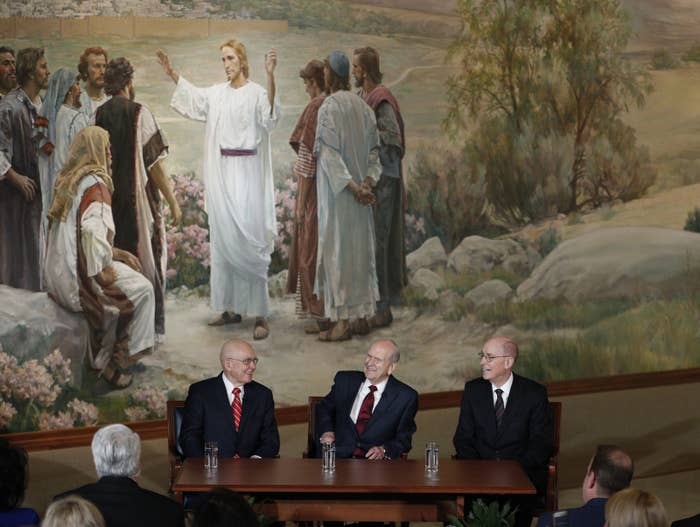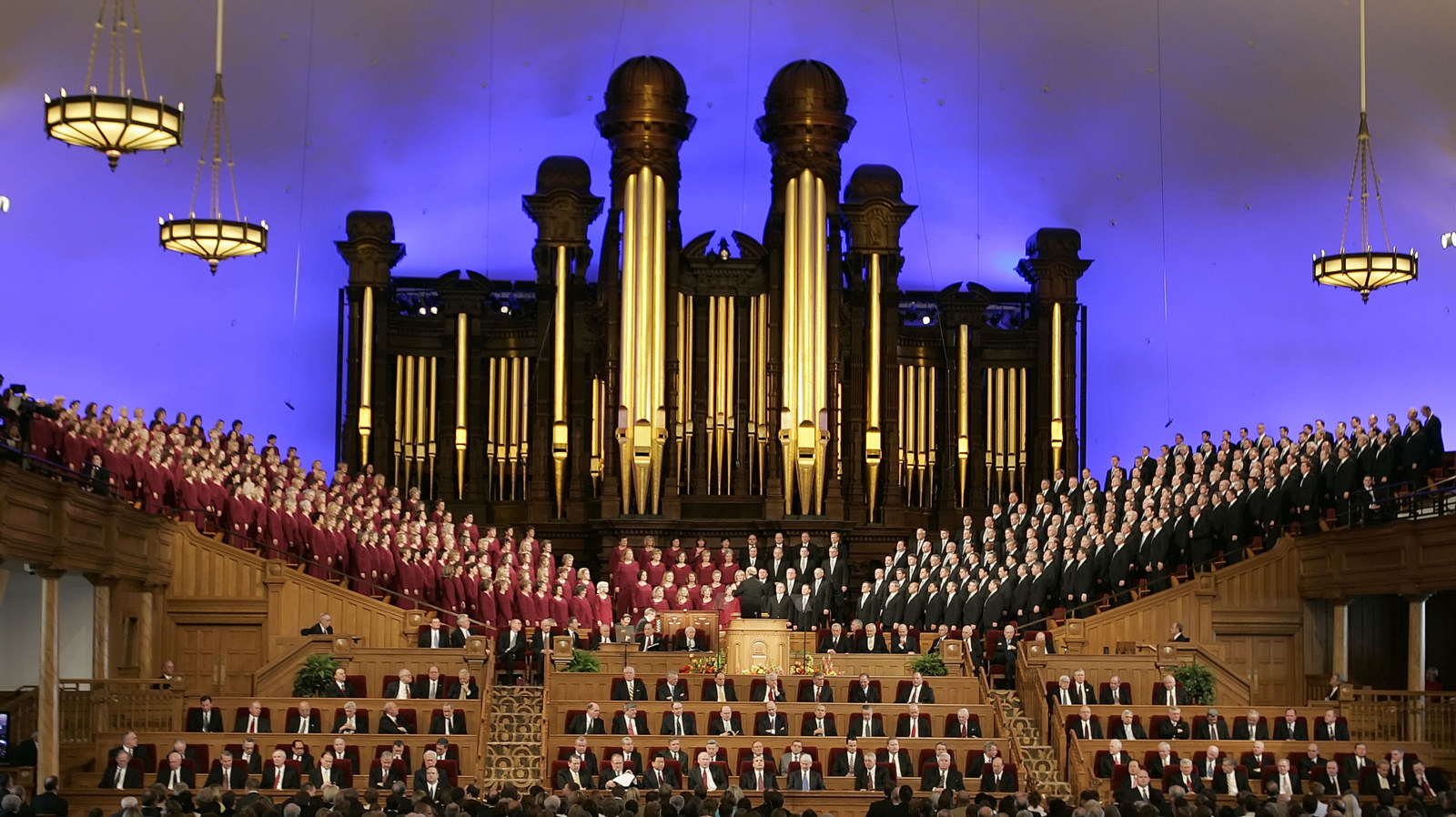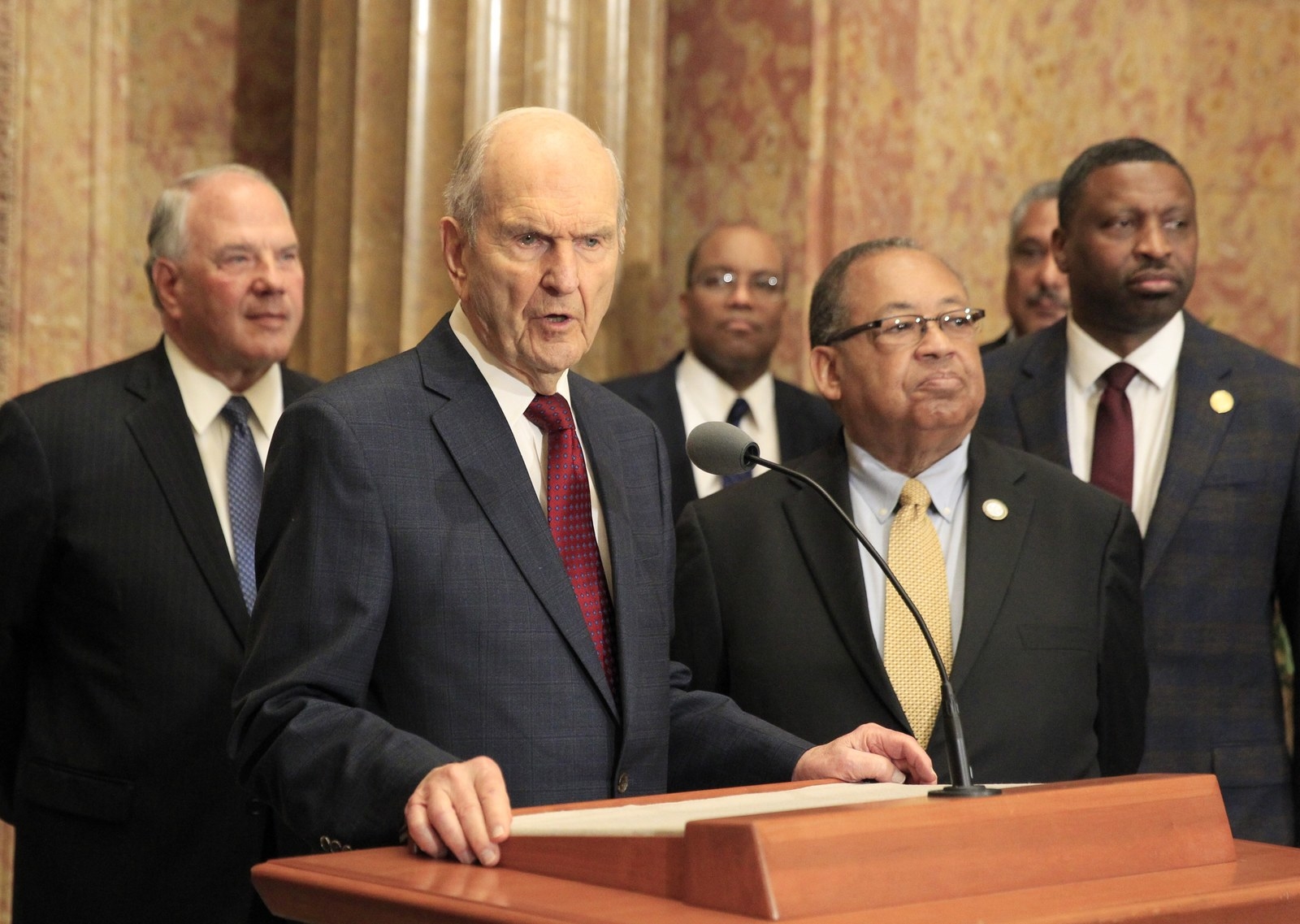
In a reversal of years of branding and more than a century of colloquial use, the religion commonly known as the Mormon Church has asked that people stop using the word “Mormon” when referring to the faith.
The Church of Jesus Christ of Latter-day Saints announced Thursday in an update to its style guide that the nickname “Mormon” and the abbreviation “LDS” should be avoided. Instead, the church would prefer to be called “the Church,” “the Church of Jesus Christ,” or “the restored Church of Jesus Christ.”
Members of the faith, who are widely referred to as “Mormons,” should be called “members of The Church of Jesus Christ of Latter-day Saints” or “Latter-day Saints.”

“We ask that the term ‘Mormons’ not be used,” the style guide now states. It also says that “the term ‘Mormonism’ is inaccurate and should not be used.”
Referring to the changes, the faith’s leader, President Russell Nelson, said in a statement Thursday that “the Lord has impressed upon my mind the importance of the name He has revealed for His Church,” adding that "we have work before us to bring ourselves in harmony with His will.”
The church has had a long and varied relationship with the term Mormon, but in recent years leaned heavily into the nickname. In 2010, it launched a high-profile international advertising campaign titled I’m a Mormon. The campaign included billboards, signs, and interviews that typically included a member of the faith declaring “I’m a Mormon.”
In 2014, the church also released a documentary called Meet the Mormons. Moreover, the church has created numerous websites using the word Mormon, such as Mormon.org, MormonNewsRoom.org, and even MormonAndGay.lds.org.
The church’s main website is simply the now-verboten acronym in URL form: LDS.org.
Going even further back, the church ran a series of commercials in the 1970s and 1980s that foregrounded the “Mormon” nickname.
Some of the church’s most prominent brand ambassadors, such as the Mormon Tabernacle Choir, use the term as well. The choir is often referred to simply as the “MoTab,” and it was unclear Thursday if it would be rebranded as, for example, “The Restored Church of Jesus Christ Tabernacle Choir,” or potentially just the “ReChuJesTab.”

Steve Evans, founder of the popular Mormon blog By Common Consent, told BuzzFeed News that the church has gone back and forth on it's approach to the word "Mormon."
“The church has never liked the term ‘Mormon,’” Evans explained. “We’ve had this on-again-off-again relationship with the term, going so far as to have children’s songs about it. The most famous of which is ‘I’m a Mormon Boy.’”
The nickname first emerged in the years after the faith began in upstate New York. Though founder Joseph Smith revealed the church’s moniker name in 1838, antagonists started referring to the faithful as “Mormonites,” a derogatory term that was later shortened just to “Mormons.” However, members of the faith, including Smith himself, quickly rehabilitated the nickname and started using it to describe themselves.

Since the 19th century, various church leaders have weighed in on use of the word Mormon, often giving conflicting advice.
“You’ll find statements throughout the history of the church that show some kind of ambivalence about this term while at the same time fully using it,” Patrick Mason, a professor of Mormon studies at Claremont Graduate University, told BuzzFeed News.
Thursday’s shift may be connected to the rise of Nelson to the top spot in the faith, which happened in January. Nelson has ushered in a host of changes to church policy and leadership, and Mason said the leader “has been concerned about this issue for quite some time, and has insisted on using the full and proper name of the church during his years as an apostle.”

Thursday’s announcement could be “a combined thing of both wanting to follow what members believe is the God-given name of the church, as well as I think an attempt to control the culture around the name and reassert a little bit of boundary maintenance,” Evans said.
Boundary maintenance is a growing issue in the faith. Among other things, recent years have seen a blockbuster musical that mocks the faith while using the word Mormon in its title, and high-profile departures from the church over issues like the role of women and same-sex marriage. But not all of the people who leave the Church of Jesus Christ of Latter-day Saints want to stop being “Mormon.”
“In recent years, there is a rising trend for people who leave the church to assert claim over the identity of being Mormon,” Evans said. “They want to consider themselves as such and view it as, ‘I might have left the church but I’m still Mormon.’”

Several denominations have splintered off from the mainstream church over the years, including a number of controversial polygamous sects. Some of those groups also refer to themselves as Mormons. The mainstream church has long sought to disassociate itself from those groups, and the style guide explicitly references that effort.
“When referring to people or organizations that practice polygamy, it should be stated that The Church of Jesus Christ of Latter-day Saints is not affiliated with polygamous groups,” the guide states.
It was unclear Thursday just how successful the church will be at distancing itself from its long-standing nicknames. Mason pointed to the vast amount of work it would take to scrub “Mormon” and “LDS” from church materials, and said that “it’s hard for me to believe this will stick, even internally.”
He also said that while members will likely “do their best to conform,” outsiders will probably keep using nicknames because the lengthy official moniker leaves few other options.
“Of course, the terms ‘Mormon’ and ‘Mormonism’ are so ingrained, both among the church membership and among journalists, academics, and other observers, that this will be an extremely difficult change,” Mason said, adding that “the church leadership may simply have to content themselves with such dual and parallel usage.”
Members of the church were greeting the announcement Thursday with “a mix of rolling their eyes and acknowledging the intent, and being realistic about how successful this will be,” Evans said. And like Mason, he speculated the change would be difficult.
“I don’t see how this ever succeeds as a branding exercise,” he said. “The church does not control how other people refer to it and it never has.”

